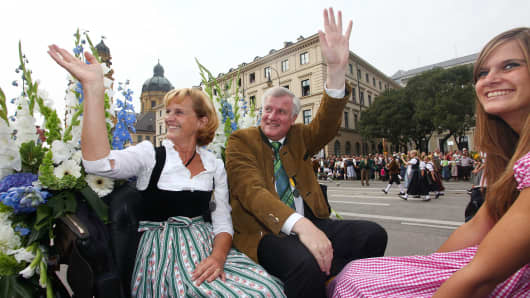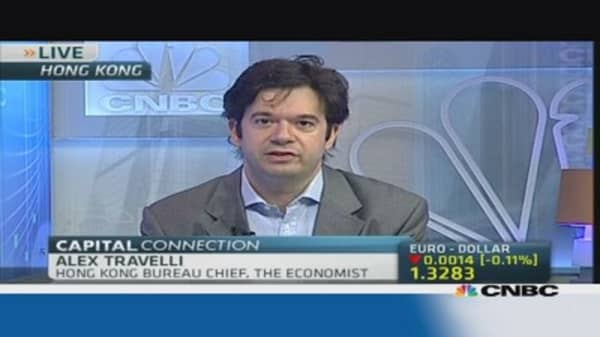This weekend's Bavarian elections in Germany – in which the "alpha male" governor of the state will seek re-election – will be closely watched ahead of the country's general elections, and could signify much about the future of German and euro zone politics, according to analysts.
The current Bavarian governor, Horst Seehofer, is expected to win the state vote this Sunday, which is seen as an "important signpost" for the outcome of the national election on September 22, yielding insights into national trends, euro zone analysts at Citi Group said on Friday.
Seehofer leads the Christian Social Union (CSU) party, which makes up half of Merkel's conservative coalition, and was labeled "one of the last alpha males left in Angela Merkel's conservative camp" by German magazine Spiegel International on Friday. His penchant for Bavarian traditions – such as lederhosen, beer halls and dirndl (a revealing dress) – has appealed to voters on the campaign trail, and helped earn him the "alpha male" title.
(Read more: Forget Berlusconi: Germany may be Italy's biggest concern)
But although the CSU looks set to win an absolute majority in Bavaria, the coalition's junior party, the Free Democrats (FDP), is not expected to fare so well. According to a poll by broadcaster N24 on Thursday evening, the FDP only has 4 percent support – below the 5 percent threshold needed for parliamentary representation.




